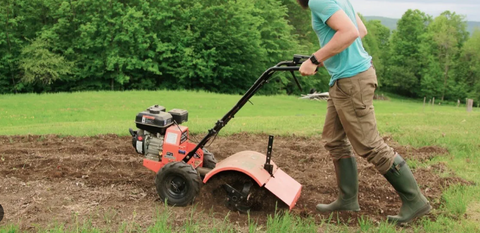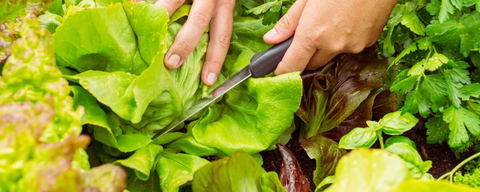When it comes to gardening, the chemicals we use can be as harmful as they are helpful if not handled correctly. Safe disposal of these substances isn't just a good practice—it's essential for protecting our environment, our health, and the well-being of wildlife. Mismanagement of garden chemicals can lead to severe consequences, making it crucial to understand how to dispose of them properly.

The Risks of Improper Disposal
Environmental Impact: Water and Soil Contamination
Improper disposal of garden chemicals can have dire environmental repercussions. Chemicals can seep into the soil, contaminating it and making it unfit for future use. Even more concerning is the risk of these substances reaching water sources. When garden chemicals enter our waterways, they can pollute drinking water and harm aquatic ecosystems, leading to long-term environmental degradation.
Health Hazards to Humans and Pets
Exposure to garden chemicals isn't just a risk for the environment; it's also a significant health hazard for humans and pets. These chemicals can cause skin irritation, respiratory problems, and other serious health issues. Pets, often exploring the garden, are particularly vulnerable to accidental poisoning, which can lead to acute health emergencies.
Long-term Consequences for Wildlife
Wildlife is not immune to the effects of garden chemicals. Birds, insects, and other animals can suffer from exposure to these toxic substances. Long-term exposure can disrupt reproductive systems, lead to population declines, and even cause species to become endangered. Protecting wildlife means disposing of garden chemicals responsibly.
Identifying Hazardous Garden Chemicals
Common Pesticides and Herbicides
Pesticides and herbicides are common in gardening, but many of them contain hazardous ingredients. These products are designed to kill pests and weeds, but they can also harm beneficial insects, animals, and even humans if not handled correctly.
Fertilizers and Their Components
Fertilizers, while beneficial for plant growth, often contain chemicals that can be hazardous in large quantities. Nitrogen, phosphorus, and potassium are key components that can cause environmental harm if they leach into water bodies, leading to issues like algal blooms.
Organic vs. Synthetic Chemicals
Organic chemicals are generally considered safer than synthetic ones, but this doesn't mean they are without risk. Both types need to be disposed of properly to avoid environmental and health hazards. Understanding the differences and handling each appropriately is crucial.
Reading Labels: What to Look For
Key Hazard Symbols and Warnings
Labels on garden chemicals contain vital information. Look for hazard symbols such as skull and crossbones, flammable, corrosive, and environmental hazard icons. These symbols provide a quick reference to the dangers associated with the product.
Understanding Expiration Dates
Garden chemicals, like other products, have expiration dates. Using the chemicals past date can reduce their effectiveness and increase the risk of harm. Always check and respect these dates to ensure safety.
Instructions for Safe Handling and Storage
Labels also include instructions for safe handling and storage. Follow these guidelines meticulously to prevent accidents and ensure that chemicals are stored in conditions that minimize risk.

Preparation for Disposal
Gathering Necessary Supplies
Before disposing of garden chemicals, gather all necessary supplies. This includes sealable containers, labels, and any protective equipment like gloves and masks. Being prepared can prevent spills and accidents during the disposal process.
Proper Protective Gear
When handling hazardous chemicals, wear appropriate protective gear. This includes gloves, masks, and sometimes eye protection. These measures protect you from direct contact and inhalation of harmful substances.
Ensuring Proper Ventilation
Work in a well-ventilated area to avoid inhaling fumes from garden chemicals. If possible, handle these substances outdoors or in a space with good airflow to minimize exposure to harmful vapors.
Temporary Storage Solutions
Safe Containers for Storage
Use durable, sealable containers for storing garden chemicals temporarily. Ensure these containers are clearly labeled to avoid accidental misuse or mishandling.
Ideal Storage Locations
Keep chemicals in a cold, dry area, away from children and pets. Avoid areas with extreme temperatures or high humidity, as these conditions can cause containers to degrade or chemicals to become unstable.
Avoiding Accidental Spills
Place containers on a stable surface and secure them to prevent tipping or spilling. Regularly check storage areas for leaks or damage to containers, addressing any issues immediately to prevent contamination.
Local Regulations and Guidelines
Researching Local Disposal Laws
Disposal laws vary by location. Research local regulations to ensure you comply with community guidelines. Improper disposal can lead to fines and environmental harm, so it's essential to know what's required in your area.
Understanding State and Federal Regulations
State and federal regulations often provide additional guidelines for hazardous waste disposal. Familiarize yourself with these rules to ensure you're following best practices for safe disposal.
Finding Local Hazardous Waste Facilities
Locate hazardous waste facilities in your area. These centers are equipped to handle and dispose of garden chemicals safely, preventing environmental contamination and health risks.

Utilizing Household Hazardous Waste Collection Events
What to Expect at Collection Events
Household hazardous waste collection events are organized to help residents dispose of hazardous materials safely. Expect to drop off your chemicals and provide information about their contents. These events often have trained staff to assist with the disposal process.
How to Prepare Your Chemicals for Drop-off
Prepare your chemicals by sealing them in original containers and clearly labeling them. Transport them securely to the collection event, ensuring they remain upright and intact.
Alternatives if No Events are Available
If no collection events are available, contact local waste management authorities for alternative disposal options. They can provide information on other safe disposal methods or facilities.
Safe Disposal of Pesticides
Steps for Proper Pesticide Disposal
To dispose of pesticides, follow these steps: keep them in their original containers, do not pour them down the drain or into the trash, and take them to a hazardous waste disposal facility. Never attempt to burn or bury pesticides.
What to Do with Empty Pesticide Containers
Rinse empty pesticide containers three times and use the rinse water as part of your application. Puncture and dispose of the containers at a hazardous waste facility to prevent reuse or contamination.
Dealing with Unused or Expired Pesticides
For unused or expired pesticides, take them to a hazardous waste facility. Do not attempt to use them beyond their expiration date, as they may be ineffective or more toxic.
Handling Herbicides with Care
Safe Methods for Herbicide Disposal
Herbicides should be disposed of following the same guidelines as pesticides. Never pour them down drains or into water bodies. Utilize hazardous waste facilities for safe disposal.
Cleaning and Recycling Herbicide Containers
Clean herbicide containers thoroughly before recycling. Triple-rinse the containers and puncture them to prevent reuse. Some recycling programs accept these containers if they are properly cleaned and prepared.
Alternatives to Chemical Herbicides
Consider alternatives to chemical herbicides, such as manual weeding, mulching, or using organic herbicides. These methods reduce the need for hazardous chemicals and promote a healthier garden environment.
Disposing of Fertilizers Responsibly
Determining if Fertilizers are Hazardous
Not all fertilizers are hazardous, but those containing synthetic chemicals can pose risks. Check labels for hazardous components and handle them with care.
Safe Disposal Methods for Synthetic Fertilizers
Dispose of synthetic fertilizers at hazardous waste facilities. Do not dispose of them in regular trash or pour them down the drain, as they can contaminate water sources.
Composting Organic Fertilizers
Organic fertilizers can often be composted or used directly in the garden. If disposing of them, ensure they are in a manner that won't harm the environment, such as through a municipal composting program.

Neutralizing and Diluting Chemicals
Methods for Neutralizing Harmful Chemicals
Certain chemicals can be neutralized to render them less harmful. Follow specific guidelines for neutralizing chemicals like acids or bases, ensuring you're using the correct neutralizing agents.
Safe Dilution Practices for Disposal
Diluting chemicals before disposal can sometimes reduce their hazard level. However, this should only be done if the label or manufacturer recommends it. Always dilute chemicals in a well-ventilated area and wear protective gear.
When Neutralization is Not Recommended
Some chemicals should not be neutralized due to the risk of creating harmful reactions. If unsure, consult local waste management authorities or hazardous waste guidelines.
Cleaning Up Chemical Spills
Immediate Steps to Take After a Spill
In the event of a spill, act quickly. Contain the leak with absorbent items such as sand or kitty litter. Avoid direct contact and ventilate the area.
Using Absorbent Materials Safely
Apply absorbent materials to the spill, allowing them to soak up the chemicals. Collect and dispose of these materials at a hazardous waste facility, never in regular trash.
Proper Disposal of Contaminated Cleanup Materials
Dispose of contaminated cleanup materials as hazardous waste. Seal them in durable, labeled containers to prevent further contamination.
Transporting Chemicals Safely
Preparing Chemicals for Transport
When transporting chemicals, ensure they are in original, sealed containers. Label them clearly and place them in a secure, upright position in your vehicle.
Best Practices for Safe Transport
Transport chemicals in the trunk or back of your vehicle, away from passengers. Avoid leaving them in hot or enclosed spaces for extended periods.
Avoiding Common Transportation Mistakes
Never transport chemicals in flimsy or leaking containers. Avoid mixing different chemicals in the same transport space to prevent dangerous reactions.

The Role of Manufacturers and Retailers
Understanding Manufacturer Take-back Programs
Many manufacturers offer take-back programs for their products. Utilize these programs to return unused or expired chemicals for safe disposal.
Retailer Recycling Initiatives
Support retailers that provide recycling initiatives for garden chemicals. These programs ensure products are disposed of responsibly and reduce environmental impact.
Encouraging Responsible Product Design
Advocate for responsible product design that minimizes hazardous ingredients and promotes eco-friendly alternatives. Support companies committed to sustainable practices.
Resources for Safe Disposal Information
Websites and Hotlines for Disposal Guidance
Visit websites like the Environmental Protection Agency (EPA) and local environmental agencies for disposal guidelines. Use hotlines to get tailored advice for your location.
Local Environmental Agencies
Contact local environmental agencies for information on hazardous waste disposal. These organizations often offer resources and programs to assist with safe disposal.
Community Groups and Organizations
Join community groups focused on gardening and environmental conservation. These groups provide support, resources, and opportunities to learn about safe disposal practices.
Disposing of garden chemicals safely is not just a responsibility but a crucial step in protecting our environment, health, and wildlife. By adopting safe disposal practices, educating others, and embracing eco-friendly alternatives, we can create a healthier, more sustainable world. Let's commit to making responsible choices in our gardens and beyond.









